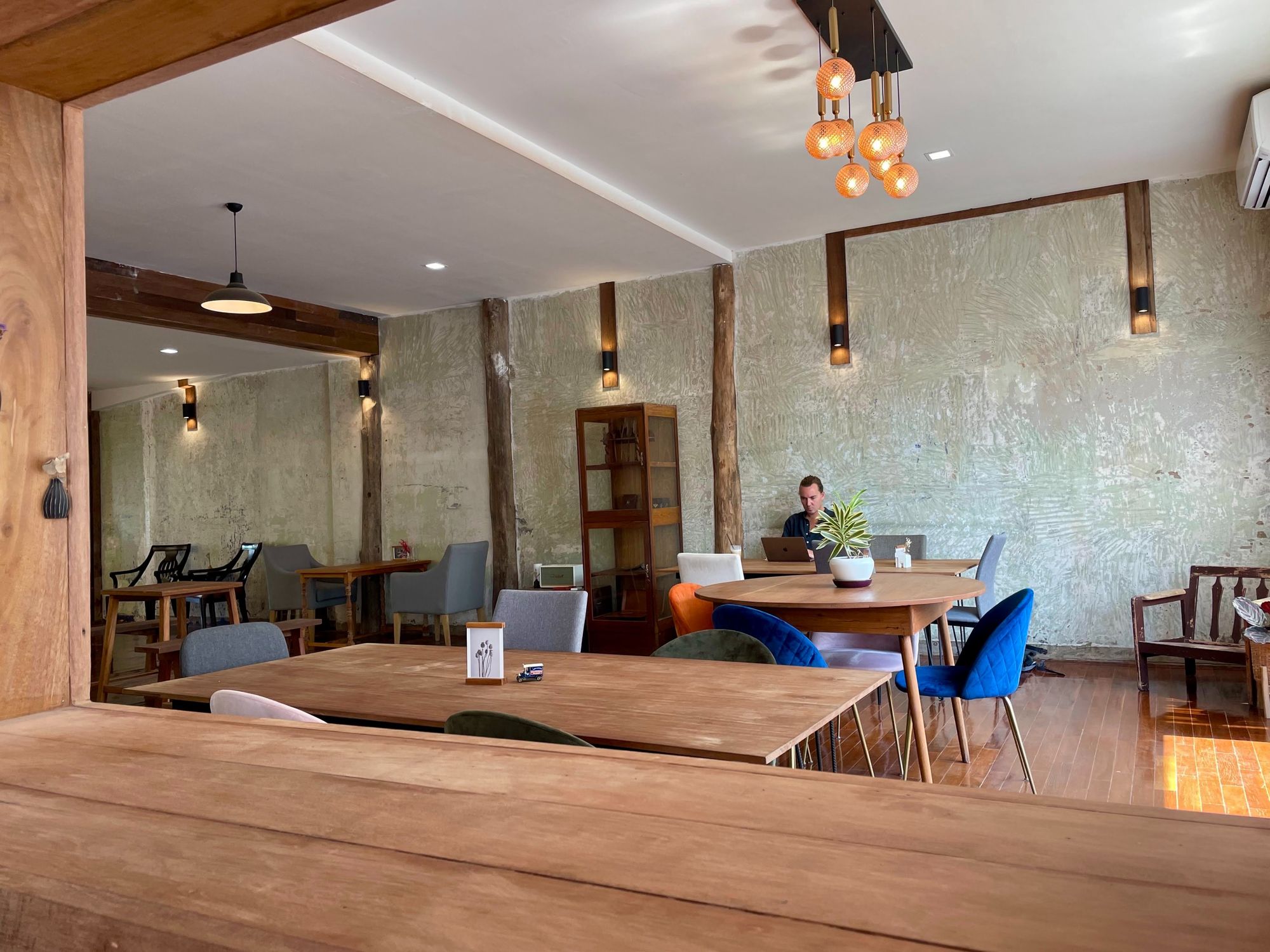10 Questions to Ask During a Remote Interview

Are you looking for a remote job? Its crucial you're prepared before your interview, so you can get as much information about the company and the remote role to determine if its the right fit for you.
To help we've put together 10 questions you should ask your interviewer next time your applying for a remote job.
Keep these in mind, and you’ll be sure to make a great impression and gather enough valuable information to make an informed decision!
You might find this relevant:

#1 Fully Distributed vs Hybrid?
Discovering how the organization is structured will give you an idea on a macro level of how you will operate in your role, your team and within the larger organization.
If the team is not fully distributed, some members are remote, and some are in an office. On the other hand, fully distributed teams have remote members, potentially from different parts of the world. Determining this upfront will allow you to weigh this into your decision-making when assessing whether the job fits you.
#2 Is there Infrastructure in Place to Support Remote Workers?
It’s essential to ask the company if they have the infrastructure to support remote workers. Do they have sound communication systems in place? Do they provide the necessary resources and support? If not, you may find yourself struggling to do your job effectively.
Asking these questions will give you a good idea of whether or not a company is prepared to support remote employees. If they’re not, it might be wise to decline.

#3 Are Defined Systems in Place to Help Remote Workers Stay Connected?
Traditional office jobs provide many offline moments to connect with colleagues. Whether having a coffee break, lunch or meeting together, it’s effortless to feel connected.
As remote work misses out on these offline moments, it’s good to clarify what systems are in place to help remote workers with this. Remote work can be isolating and challenging at times, and it can be difficult to stay on top of your work without the proper support in place.
An excellent remote working setup should include tools and processes for communication and collaboration, as well as clear expectations and deadlines.
#4 Are there the same Opportunities for Career Growth as Office-Based Employees?
For remote workers, visibility is key to getting promoted. If you’re not in the office, it can be easy for your work to go unnoticed.
That’s why it’s crucial to ensure remote workers have the same career growth and advancement opportunities as office-based employees. Otherwise, you could find yourself stuck in a remote position with no chance of moving up within the company.

#5 Does the Company have a Remote Work Policy?
When interviewing for a remote job, it’s important to ask the company if they have a remote work policy. This can be a red flag if they don’t, as it may indicate that the company is not prepared to support remote workers.
A remote work policy outlines the company’s expectations and procedures for working remotely and should include guidelines for communication and collaboration, procedures for logging into company systems, and expectations for meeting attendance.
#6 Remote Opportunity – Employee Or Contractor?
Understanding the difference between an Employee or Contractor opportunity is essential when determining the type of remote opportunity you’re interviewing for. Employees are typically entitled to many benefits, including health insurance, vacation pay, and sick days.
On the other hand, Contractors are usually not entitled to any benefits. In addition, employees are typically subject to withholding taxes, while contractors are not.
Depending on your situation, you may have a preference for one or the other structure and knowing at the beginning of the process will enable you to make an informed decision.

#7 Are There Any Benefits Alongside Salary?
A remote job can offer many benefits, but it’s vital to ensure you know what those benefits are before you accept the position. In addition to salary, you’ll want to find out what other perks the company offers.
For example:
- Do they provide equipment such as a laptop or mobile devices?
- Do they provide a stipend for internet or phone service?
- Do they offer paid time off?
- What are the healthcare benefits (if any)?
These are all critical factors to consider when weighing whether or not to accept a remote job. By asking about the benefits beyond salary, you can be sure you’re getting the best deal possible.
#8 How, When and How Often Will I Be Paid?
Regardless of the industry, asking about compensation when interviewing for a new job is always important. This is especially true when the position is remote, as there may be additional factors to consider.
For example, what currency will you be paid in? If the company is based in a different country, significant fees may be associated with converting your earnings into your local currency.
It’s also important to ask about the method of payment. Some companies may offer direct deposit, while others require you to invoice them for your hours worked.
Lastly, it’s essential to ask about the frequency of payments. Some companies may only pay their employees once a month, while others may issue weekly or bi-weekly payments. By asking about these key details, you can ensure that you’re fairly compensated for your work.

#9 Clarity on Work Hours Each Week
Working remotely can offer greater flexibility in terms of hours, but it’s essential to ensure that you’re able to meet the expectations of the role. If a company expects you to work 40 hours per week, but you’re only available for 20, it will not be a good fit.
Asking about expected hours upfront can help avoid misunderstandings when starting the role. Also, depending on how badly the company wants you, It also gives you a chance during the interview process to negotiate terms that are more in line with what you’re looking for.
#10 When will I know the outcome of the hiring process?
When considering any job, it’s essential to understand the hiring timeline clearly. Will the company decide within a week? A month? Longer?
Asking about the timeline upfront can help manage your expectations, help with your planning, and avoid any confusion or frustration down the road. It can also show you’re serious about the job and eager to learn the outcome sooner rather than later.
Make sure to check out:

Conclusion
As you’ve read above, there are many questions that could be asked during a remote interview. You could ask about the type of support systems available whilst working remotely, what opportunities are available for growth, as well as the composition of the organization, amongst other things.
By asking these types of questions, you can be sure you’re getting all the information you need to figure out if the remote opportunity is right for you.
Let us know how your next interview goes by dropping us a line on Instagram - @remotevagabond.
